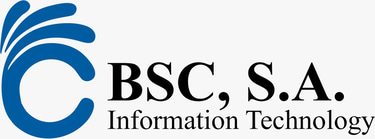Developing Digital Skills for the Professional Future
https://observatorio.tec.mx/edu-news/habilidades-digitales-futuro/
BSC, S. A. Source. Observatory, Institute for the Future of Education Tecnológico de Monterrey, Author. Nohemí Vilchis, February 16, 2024
4/18/20242 min read


Digital Skills for the Professional Future
In a constantly evolving world, where technology plays a fundamental role in all aspects of our lives, it is crucial that people acquire and develop digital skills to ensure their professional success. These skills not only allow us to adapt to rapid changes in the work environment, but also empower us and give us tools to make the most of the potential of technology.
The Importance of Digital Skills
Digital skills are increasingly in demand in the labor market. Companies look for professionals who are able to efficiently use digital tools and technologies to improve productivity, communication and effectiveness at work. Additionally, these skills are essential to adapt to constant changes in the way tasks are performed and businesses are managed.
Digital skills also allow us to access a world of information and knowledge without limits. Through the internet, we can learn new skills, connect with experts in our field, and access resources and opportunities that were previously inaccessible. This gives us the opportunity to broaden our perspectives and constantly improve our professional capabilities.
Essential Digital Skills
There are several digital skills that are essential for the future professional. Some of them include:
1. Digital Literacy
Digital literacy involves having basic knowledge of how to use digital technologies, such as computers, the Internet, and software. This includes knowing how to navigate the web, use word processing and spreadsheet programs, and understanding the basics of online safety.
2. Analytical Thinking
Analytical thinking is the ability to collect, analyze and evaluate information using digital tools and technologies. This involves being able to interpret data, identify patterns and trends, and make informed decisions based on the information collected.
3. Digital Communication
Digital communication involves using digital tools and technologies to communicate effectively. This includes knowing how to write professional emails, use instant messaging platforms, and collaborate online with colleagues and clients.
These are just some of the essential digital skills for the future professional. Importantly, these skills are not only relevant to those working in the technology field, but are necessary in almost all sectors and occupations. Whether you work in marketing, education, finance or any other field, acquiring and developing digital skills will allow you to stand out and succeed in the current and future world of work.

